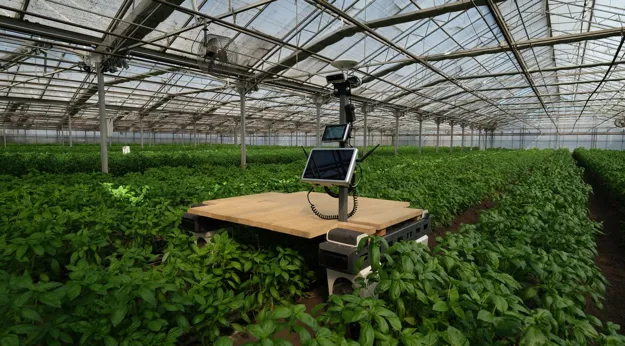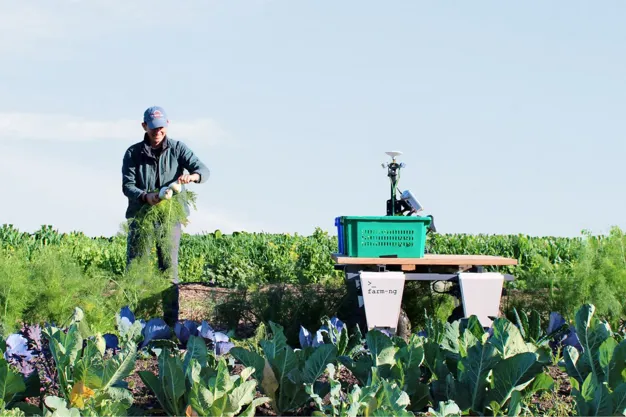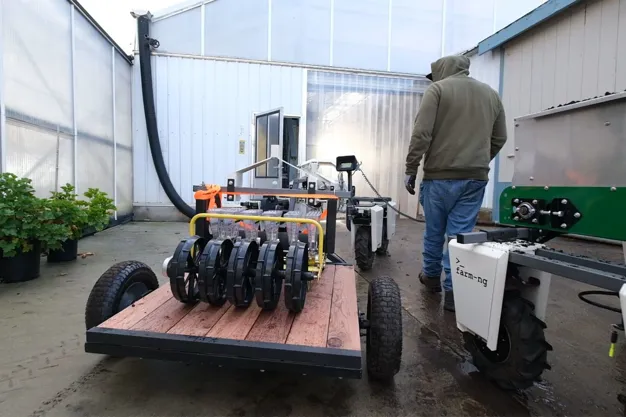Farm-ng, The VINE, and the University of California Agriculture and Natural Resources (UCANR) have launched the second year of the Farm Robotics Challenge, a unique contest that brings together agriculture and engineering. This initiative invites university students to create robotic solutions for farming problems, fostering collaboration among academia, the industry, and technology enthusiasts. The goal is to enhance the sustainability and efficiency of farming practices through innovative solutions to make agriculture more sustainable and efficient.
The challenge is designed to offer students tangible, real-world experience in applying their robotics knowledge to address critical issues facing the agricultural sector today, like labor shortages, sustainability hurdles, and the operational challenges of small-scale farms. Contestants compete for cash prizes in four categories: overall design, complexity, elegance, and the most innovative small farm solution, developing a diverse range of creative and practical solutions.

Amiga
At the core of the Farm Robotics Challenge is the Farm-ng "Amiga," a modular robotic platform that is adaptable and cost-effective. Engineered with flexibility in mind, the Amiga allows for rapid customization to suit a variety of agricultural tasks. Its expandable frame supports a variety of attachments and implements, while a camera system enables comprehensive data collection and analysis. The platform serves as a tool for in-field technological experimentation, showcasing the future potential of agricultural automation. Simultaneously, it nurtures talent, enabling individuals to reshape farming's future with their unique skills and insights.
Gabe Youtsey, Chief Innovation Officer at UCANR, emphasizes the role of robotics in agriculture: "Robotics and automation advancement is designed to support and augment human labor, not replace it." This approach aims to optimize farming practices by reducing the reliance on manual, labor-intensive tasks and allowing workers to focus on more complex and intellectually demanding tasks, enhancing both productivity and workplace safety.

The challenge also aims to tackle the demographic shift in the farming community, noted by an aging population of farmers and a declining interest from younger generations in agricultural careers. By creating a platform where experienced farmers can share their knowledge with students, the initiative promotes an exchange of traditional wisdom and innovative ideas. This interaction is a deliberate effort to ensure that the traditions and practical skills of farming are preserved, adapted, and embraced by future generations.
By bringing together the innovative spirit of university students with the practical challenges faced by modern agriculture, the Farm Robotics Challenge not only addresses current farming issues but also lays the groundwork for a sustainable, prosperous farming future. Through this competition, today's students are poised to become tomorrow's agritech pioneers, ensuring the continuity of farming in an increasingly tech-driven world.
 Authored by Andrea Tinajero, Monterey County native, UC Davis alumni, and Farm-ng leader specializing in sustainable agricultural and organic production.
Authored by Andrea Tinajero, Monterey County native, UC Davis alumni, and Farm-ng leader specializing in sustainable agricultural and organic production.
 For more information:
For more information:
Andrea Tinajero
Farm-ng
Tel.: (831) 200-3508
[email protected]
www.farm-ng.com
